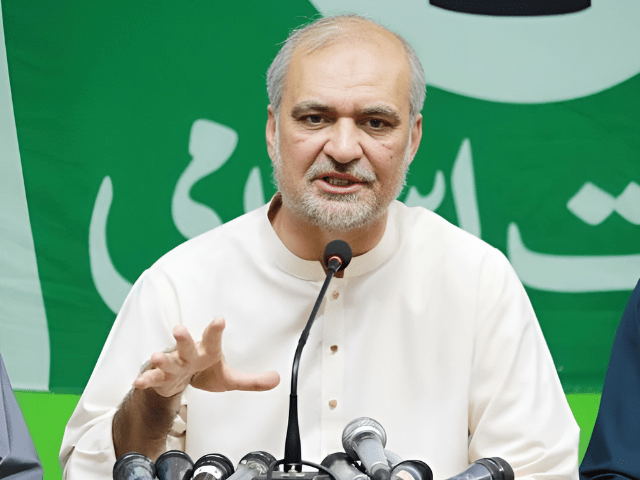Hafiz Naeem ur Rehman, Emir of Jamaat-e-Islami Pakistan, has called on the establishment to change its policy towards Balochistan and ensure that the people of the region enjoy their due share of rights.
Speaking at a seminar titled “Burning Problems of Balochistan and Their Solutions“ at the Karachi Press Club, Rehman stressed that the ruling elite and the establishment must recognize the legitimate demands of the citizens of Balochistan. He said that if the people of Balochistan were given respect and their rights, they would turn out to be even more patriotic.
“To resolve the problems of Balochistan, we need to engage with the real leaders of the region,” he said. He added that the current representatives in the Balochistan assembly did not truly represent the people of the province.
Rehman called for the activation of the missing persons commission, urging that the use of force cease and those missing be returned. He said anyone who is a criminal or a terrorist must be tried in court in accordance with the Constitution and the law.
“There is nothing in any constitution that allows enforced disappearance of people,” Rehman remarked, reaffirming his support for Baloch leaders in Karachi.
The Jamaat-e-Islami, he said, would raise voice across the country for the rights of Balochistan, adding that the party was planning large rallies in Lahore, Islamabad and Peshawar, including a historic rally at Minar- e-Pakistan in Lahore.
Rehman also addressed the economic and infrastructural challenges facing Balochistan. He urged the government to ensure provision of essential commodities and facilities to the people of Balochistan, who he said could be a key player in the development of Pakistan.
He pointed out that Balochistan has immense potential for solar power generation and should receive a greater share of the benefits from its mineral resources.
Rehman proposed that 20% of the revenue from Balochistan’s mineral resources be allocated to the population of the province, which he said would help accelerate regional and national development. He further highlighted the need for a highway connecting Quetta to Karachi, pointing out that lack of infrastructure was causing annual deaths.
“Every year, 8,000 people lose their lives in road accidents between Quetta and Karachi due to lack of adequate roads,” he concluded.




